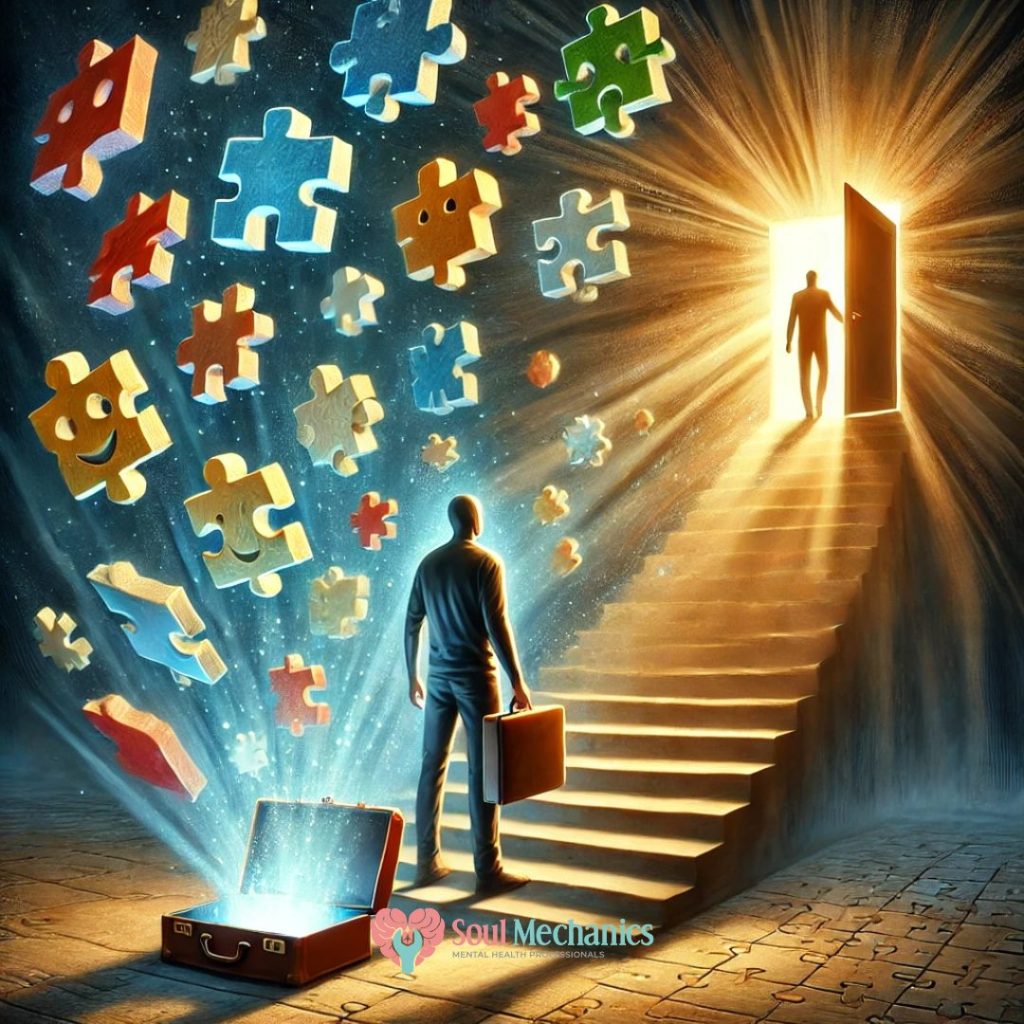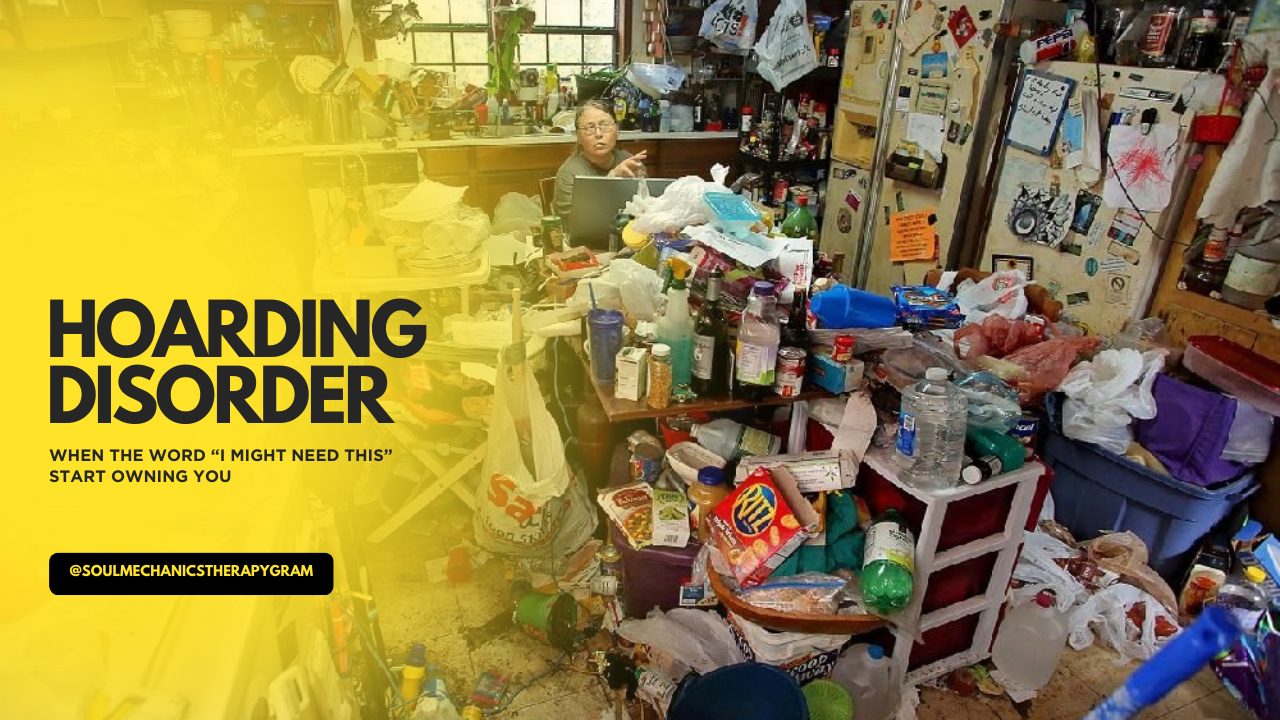Hoarding Disorder: When The Word “I Might Need This” Starts Owning You
Hoarding Disorder: When The Word “I Might Need This” Starts Owning You
Written By: Nurul Aina Syasya Mohamed Nasir (Psychology Intern)
We’ve all kept things we don’t use. That T-shirt from a high school club or event. A box of cables that “might be useful one day.” A drawer full of notebooks we’ll “use later”.
For most of us, eventually, these things get donated, tossed, or recycled.
But sometimes, the piles don’t shrink. They grow. And one day, you look around and realise… there’s barely room for you anymore.
It’s Not About Being Messy
Hoarding Disorder isn’t just about an overfilled room. It’s not about laziness, either. It’s about how objects can feel safer than letting go. You might feel anxious when you think about throwing something away. You might believe you’ll need it “someday”, even if that day hasn’t come in years.
Reminder: If you or your loved ones are struggling with mental health issues, please don't hesitate to reach out to us at Soul Mechanics KD or Soul Mechanics Ipoh. Remember, seeking help is not a sign of weakness but strength!
Sometimes, the items aren’t just things. They’re memories, proof you mattered or even reminders of people you’ve lost. Letting go can feel like losing a part of yourself. And that’s why the “Just clean it up” doesn’t work.
How It Impacts You and People Around You
Hoarding can slowly find its way into your life. At first, it’s just a few extra piles in the corner. Then one room becomes a space you avoid. Soon, parts of your home stop working the way they’re supposed to.
And it doesn’t just affect your space, it affects YOU. Your mental health can suffer: you might start feeling more worried, guilty or cut off from others. Your space might become unsafe, with piles you could trip over, dust that affects your breathing or even a higher risk of fire. Sometimes, you even stop seeing your space clearly because you’ve gotten used to it. Your relationships suddenly feel fragile. You might start avoiding friends or family because you’re embarrassed.
Finding Your Way Back
If this sounds familiar, you’re not alone and you’re not “broken.” Hoarding Disorder is a real & treatable mental health condition. Here are the small steps to start changing:

Pick 1 tile at a time, not a wall:
- You don’t have to clean everything at once. Start with one drawer first, then one shelf, then one corner. Over time, you’ll see your home becoming cleaner and more comfortable.
Ask yourself kindly:
- If I let this go, will it make my life harder? Because sometimes wondering, instead of feeling guilty, makes it easier to let go of things.
Find your social support:
- A therapist trained in hoarding issues, a supportive friend, or even communities online that approach decluttering with compassion can help.
Rethink your “worth”:
Your value isn’t tied to what you own or what you keep. You matter even without all your stuff.
Wrapping It Up
You aren’t a mess. Your worth isn’t measured by what you keep. You are more than the piles, the boxes or the “somedays.” You are someone worth caring about, whether spaces are clean or crowded. And, you are allowed to have space, not just in your home, but in your mind.
And when you’re ready, you can start creating that space. One step at a time, you can create space for the life you truly want.
If you’re looking for a therapist in Kota Damansara or Ipoh area, you can click here for more information.
If you enjoyed reading this, why not broaden the horizon of knowledge by learning about "Anxiety in Children: Under 10 years old"? You can read the blog here.
For more content related to mental health, follow us on our official Instagram.

